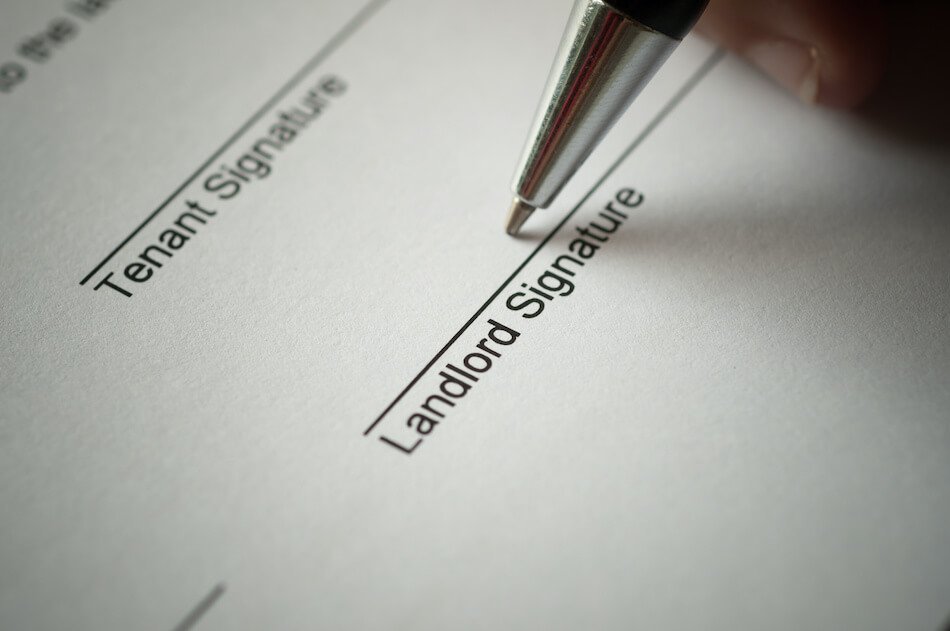 Many real estate professionals are looking to make an investment while the Nashville commercial real estate market is thriving.
Many real estate professionals are looking to make an investment while the Nashville commercial real estate market is thriving.
For informational purposes only. Always consult with a licensed real estate professional before proceeding with any real estate transaction.
Flesh Out All Terms in The Lease
To set the stage for a successful lease, make all the terms explicit and in writing. When the expectations are clear, there is little room to be confused about essential points like reporting a maintenance need or who is responsible for certain types of damage. Everything from basic instructions to minor details should not be left to the mystery but fully fleshed out in the lease. Here are some items to include so that everyone is on the same page:
- The Rent Amount
- The Lease Period
- When to Pay Rent
- Methods to Pay Rent
- Details About Late Fees
- Details About Security Deposits
- Methods to Report Maintenance Needs
- Contact Information
- Terms of Eviction
- Inspection Times & Intervals
- Whether it's a Modified, Single, Double, or Triple-Net Lease
- Single Net:
- The tenant pays the lease and property tax.
- The landlord covers all repairs, insurance, and repairs.
- Double Net:
- The tenant pays the lease, utilities, property tax, and insurance premiums.
- The landlord pays for repairs and maintenance.
- Triple Net:
- The tenant pays the lease and for all building-related costs.
- The landlord only pays for structural issues.
- Modified Net:
- Most costs are split between tenant and landlord.
- Single Net:
Depending on the type of commercial lease, you may need to omit or include different items. Overall, you should mention everything essential to maintain profits and keep your building in good condition. Make all these terms clear and have the tenant sign beside all important points so that nothing is misunderstood.
If the landlord takes care of all the building's financial needs and maintenance, provide information on how to get in touch quickly to cover these needs. Provide physical and digital copies of the lease so that both parties can access the report at any time.
Establish Effective Communication
In every business relationship, effective communication is critical. This ensures the satisfaction of every person involved. Provide multiple channels of communication so that you can exchange information efficiently and at any time of the day. Though landlords shouldn't feel obligated to be available by phone on nights and weekends, they should provide methods for the tenant to report issues securely at all hours. They should also hire a property manager if they are unavailable to assist during standard hours. Here are some ways to keep communication tight throughout the lease period:
- An online client portal is standard in the digital age. This solution allows tenants and landlords to upload pictures, make payments, report maintenance needs, send messages, conduct group calls, and store documents securely. It's a one-stop shop where everyone can stay organized and in cooperation with each other.
- When choosing a good property management firm, look for one that can meet the immediate communication needs of tenants. This is essential to landlords of multiple commercial properties, especially if they aren't local. Property managers can be in the same area as the property so that tenants can feel confident about reaching a responsible party.
Collect All Deposits for Incidentals in Advance
A landlord should secure any finances for incidentals in advance through deposits. Though a lease can have terms regarding repair costs for incidentals during the lease period, it could be challenging to get hold of the money if the issue is disputed. To ensure landlords have the money to cover damage that happens during the lease, collect all security deposits before the lease begins.
Also, do a thorough walkthrough of the property together so that both parties acknowledge its initial condition. Have the tenant sign a document that verifies their observations of the property so that anything that is damaged during the lease is proven to happen during the lease period. This also justifies using the security deposit instead of hunting down the money after repairs are complete.
Organize Periodic Inspections
Landlords should schedule mandatory periodic inspections of the commercial rental property. This process ensures that everything is in good condition or prevents significant issues from developing, especially during commercial leases that typically last for a few years. During an inspection, you can spot minor problems before they become more expensive.
Whether the landlord decides to hire a professional property inspector or do an in-person walkthrough to verify certain areas, ensure that the method allows you to get enough information. For commercial properties, it's preferable to hire a professional inspector to provide impartial results. With all information available to both parties, any necessary repairs can be discussed and scheduled as soon as possible.
Landlords and Tenants Do Better When They Work Together
To make managing a commercial rental as easy as possible, there needs to be a positive relationship between the tenant and the landlord. Establishing prior expectations, maintaining open communication, and being mutually honest about the state of the property makes the relationship run more smoothly, which, in turn, helps both parties avoid unwanted expenses.
For informational purposes only. Always consult with a licensed real estate professional before proceeding with any real estate transaction.



